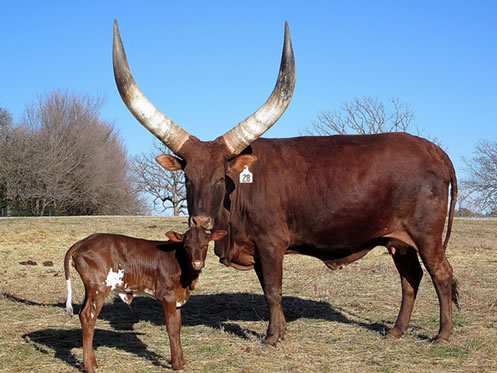 |
Maborei kuinet ab teta moitantanyin. (Kalenjin) Pembe ya ng’ombe haiwezi kuua ndama yake. (Swahili) Une corne de vache ne peut pas tuer son veau. (French) A cow’s horn cannot kill its calf. (English) |
Kalenjin (Kenya and Uganda) Proverb
Background, Explanation, History, Meaning and Everyday Use
The Kalenjin are a highland Nilotic Ethnic group inhabiting the Rift Valley Province in Kenya. They are estimated to number a little over 4.9 million as per the 2009 Kenya Census. They are a macro language grouping of eight culturally and linguistically related ethnic groups including the Kipsigis, Nandi, Keiyo, Markwet, Pokot, Sabaot, Tugen and Terik. There are Kalenjin in Kenya and on the Uganda border with Kenya. The Kalenjin are renowned on a national and international level for their athletic prowess and they are sometimes referred to as Kenya’s running tribe. Traditionally Kalenjin houses were round. Walls were constructed of bent saplings anchored to larger posts and covered with a mixture of mud and cow dung; roofs were thatched with local grasses.
The cow horn is to defend against other animals or predators. As a mother she cannot kill her child by using its horns. A cow uses its horn like a hand to order to train and to instruct. It helps her child grow up and become responsible. The mother does it with love and with the same horn it caresses her calf.
Biblical Parallels
 He who holds back his rod hates his son, but he who loves him seeks him with correction (Proverbs 13:24).
He who holds back his rod hates his son, but he who loves him seeks him with correction (Proverbs 13:24).
And fathers, do not provoke your children to anger, but nurture them in the discipline and teaching of our Master (Ephesians 6:4).
Fathers, do not provoke yourchildren that they may not bediscouraged (Colossians 3:21).
My son hears your father’s instruction. Do not forsake the Torah of your mother for they shall be an ornament of grace to your head and necklaces for your neck (Proverbs 1:8-9).
My son, pay attention to my words; stretch your ear to what I say; let them not depart from your eyes; keep them in the center of your heart; for they are life to those who find them, and healing to all his flesh. Keep your heart with all diligence, for out of it are the issues of life (Proverbs 4:20-22).
A wise son hears his father’s instruction, but a scorner does not hear rebuke (Proverbs 13:1).
Contemporary Use and Religious Application
The hand that beats a child is the same that cares. Parents who want to see their children grow up must know how to educate them with love. The punishment inflicted by a good parent to his or her child has an educational character — as a stimulus for improvement and growth in the right line. Parents have the powerful example of the cow that cares about protecting and helping her calf with her horn.
As the Catholic Church in Africa prepares for the Synod of Bishops in Rome in October, 2015 on the theme of “Family and Marriage,” we are reminded of the importance of effective and better parenting.
NOTE: This Kalenjin proverb is No. 45 in a Collection of 100 Kalenjin Proverbs by Laur Mwepu Luiza in collaboration with the African Proverbs Working Group (Nairobi: Privately Printed, 2015). It will be posted as an Ebook on the African Proverbs, Sayings and Stories Website at: http://afriprov.org/index.php/ressources/e-books,html
Laur Mwepu Luiza
Nairobi, Kenya
Tel: 0725-806611
Email: laurjudithmwepu@yahoo.fr
Photographs provided by:
Professor Cephas Yao Agbemenu
Department of Fine Arts
Kenyatta University
P.O. Box 43844
Nairobi, Kenya
Cellphone: 0723-307992
Email: cyagbemenu@yahoo.com

